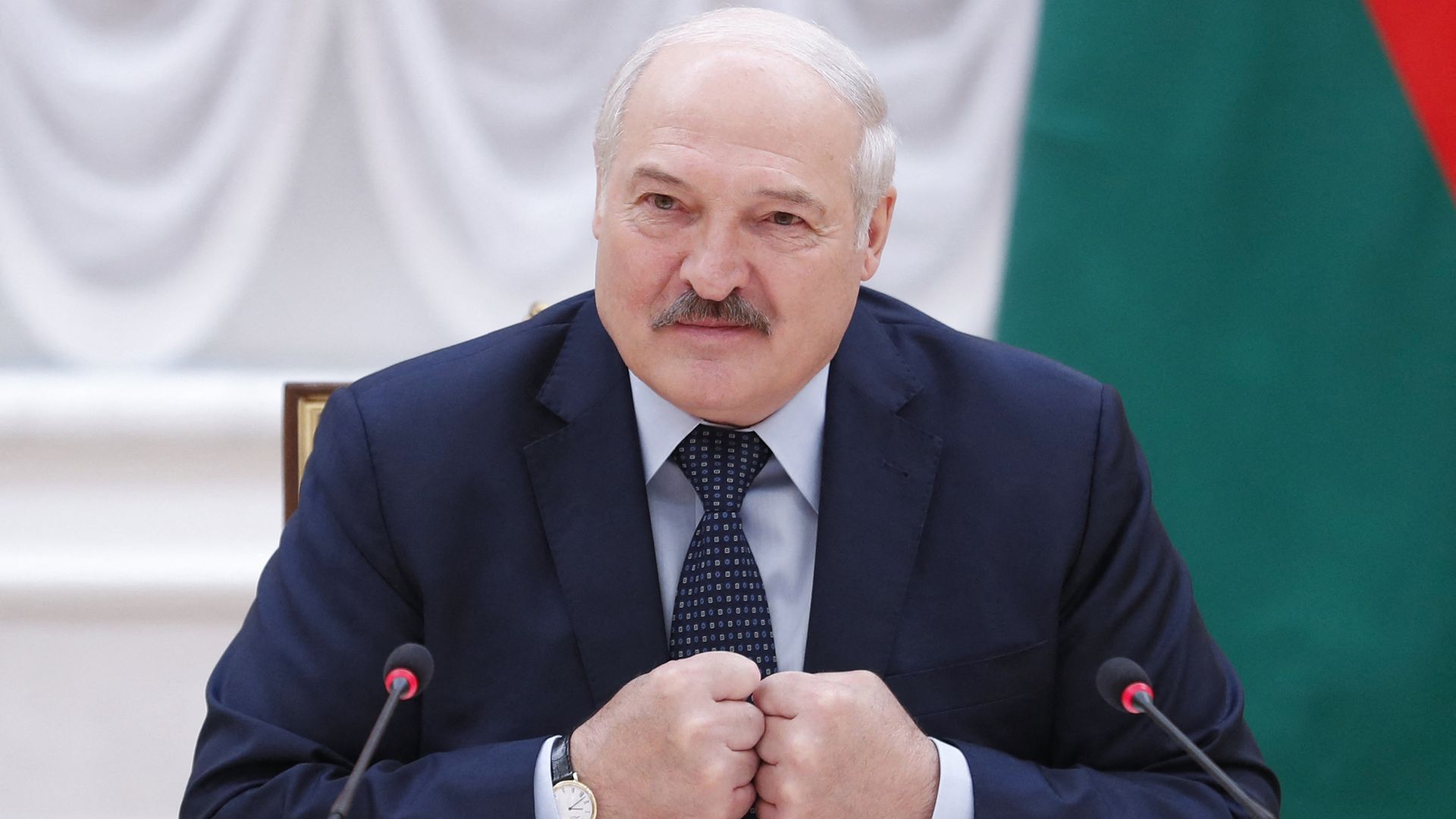Aug 11, 2021 - World
Belarus blocks U.S. ambassador's entry in response to sanctions
Add Axios as your preferred source to
see more of our stories on Google.

Belarusian President Alexander Lukashenko during a May meeting in Minsk. Photo: Dmitry Astakhov/POOL/AFP via Getty Images
